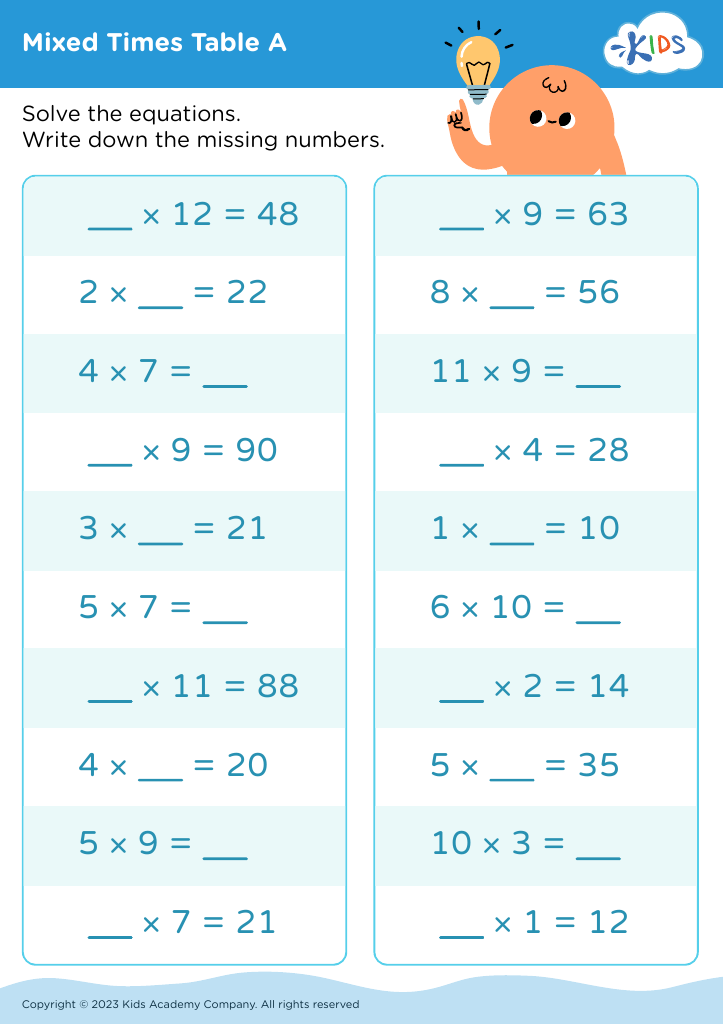Mathematical fluidity Worksheets for Kids
1 filtered results
-
From - To
Question/Answer
Why is the Mathematical fluidity skill important for Grade 3 students?
Mathematical fluidity is crucial for Grade 3 students as it enhances their ability to effortlessly apply fundamental math concepts in varied contexts. This skill fosters confidence in mathematical problem-solving, supports the development of higher-order math skills, and helps students efficiently navigate increasingly complex mathematical tasks, laying a solid foundation for future academic success in mathematics and related disciplines.
What are some effective activities to train students’ Mathematical fluidity skill when teaching them about Mixed Times Tables?
Effective activities for training students’ Mathematical fluidity in Mixed Times Tables include using flashcards for quick recall, timed quizzes to improve speed, interactive games that adapt to their skill level, and grouping students for cooperative learning exercises. Incorporating puzzles and challenges that require applying times tables in various contexts also helps deepen understanding and fluidity.
How to test a Grade 3 student’s Mathematical fluidity skills?
To test a Grade 3 student's Mathematical fluidity skills, administer tasks involving basic arithmetic (addition, subtraction, multiplication, and division), simple problem-solving, and understanding of mathematical vocabulary. Use timed quizzes for basic operations to assess speed and accuracy, and present real-world scenarios for problem-solving to evaluate their ability to apply mathematical concepts in various contexts.













